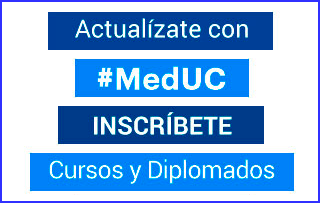Aspectos éticos de la investigación Biomédica: Desafíos actuales de la investigación en países en vías de desarrollo
DOI:
https://doi.org/10.11565/arsmed.v35i2.171Palabras clave:
investigación BiomédicaResumen
En el presente artículo, analizaremos en profundidad los desafíos éticos que plantea la investigación biomédica que se realiza en países en vías de desarrollo, especialmente cuando esta es planeada, ejecutada y/o financiada por investigadores o empresas provenientes de regiones con mayor desarrollo. Específicamente, determinaremos de qué manera los principios éticos básicos descritos en el Informe Belmont, de respeto por las personas, beneficencia y justicia, deben ser cautelados en este tipo de investigación. Proponemos, al igual como lo han hecho otros investigadores, crear una sociedad de colaboración entre investigadores, encargados de políticas públicas y la comunidad, la que, junto a un adecuado entrenamiento de los miembros de los comités de ética locales, garanticen que se respeten estos principios básicos.Descargas
Citas
Hanson M., Callaghan D. (1999). The goals of medicine The forgotten issues in health care reform Washington DC: Georgetown University Press.
US Department of Health and Human Services. Protection of Human Subjects, 45 CFR Part 46.102’. Disponible en http://www.nihtraining.com/ohsrsite/guidelines/45cfr46.html#46.102. [Consultado el 13 de junio 2006].
“The Nürnberg Codeâ€. (1996). JAMA 276, pág. 1691. World Medical Association Declaration of Helsinki. (1997). “Recommendations guiding physicians in biomedical research involving human subjectsâ€. JAMA 277 pág. 925-926. The National Commission for the Protection of Human Subjects of Biomedical and Behavioral Research. “The Belmont Report. Ethical principles and guidelines for the protection of human subjects of researchâ€. Disponible en http://www.nihtraining.com/ohsrsite/guidelines/belmont.html [Consultado el 13 de junio 2006]. Council for International Organizations of Medical Sciences (CIOMS). “International Ethical Guidelines for Biomedical Research Involving Human Subjectsâ€. Disponible en http://www. cioms.ch/frame_guidelines_nov_2002.htm [Consultado el 14 de junio 2006]. “Norma Técnica Nº 57: Regulación de la ejecución de ensayos clínicos que utilizan productos farmacéuticos en seres humanosâ€. Disponible en http://www.ispch.cl/formularios/norma_tec/norm_tec_n_57.pdf. [Consultado el 14 de junio 2006].
“The Nürnberg Codeâ€. (1996). JAMA 276, pág. 1691.
The National Commission for the Protection of Human Subjects of Biomedical and Behavioral Research. “The Belmont Report. Ethical principles and guidelines for the protection of human subjects of researchâ€. Disponible en http://www.nihtraining.com/ohsrsite/guidelines/ belmont.html [Consultado el 13 de junio 2006].
Nuffield Council on Bioethics. “The Ethics of Research Related to Healthcare in Developing Countries. Follow-up paperâ€. Disponible en http://www.nuffieldbioethics.org/go/ ourwork/developingcountries/page_246.html [Consultado el 26 de junio 2006].
Council for International Organizations of Medical Sciences (CIOMS). “International Ethical Guidelines for Biomedical Research Involving Human Subjectsâ€. Disponible en http:// www.cioms.ch/frame_guidelines_nov_2002.htm [Consultado el 14 de junio 2006].
World Medical Association. Declaration of Helsinki. “Ethical Principles for Medical Research Involving Human Subjectsâ€. Disponible en http://www.wma.net/e/policy/b3.htm [Consultado el 14 junio 2006].
Hyder AA., Dawson L. (2005). “Defining standard of care in the developing world: the intersection of international research ethics and health systems analysisâ€. Developing World Bioeth 5, pág. 142-152.
Council for International Organizations of Medical Sciences (CIOMS). “International Ethical Guidelines for Biomedical Research Involving Human Subjectsâ€. Disponible en http:// www.cioms.ch/frame_guidelines_nov_2002.htm [Consultado el 14 de junio 2006].
Bang AT., Bang RA., Baitule SB., Reddy MH., Deshmukh MD. (1999). “Effect of home-based neonatal care and management of sepsis on neonatal mortality: field trial in rural Indiaâ€. Lancet 354 pág. 1955-1961.
Bang AT., Bang RA., Stoll BJ., Baitule SB., Reddy HM., Deshmukh MD. (2005). “Is home-based diagnosis and treatment of neonatal sepsis feasible and effective? Seven years of intervention in the Gadchiroli field trial (1996 to 2003)â€. J Perinatol 25 Suppl 1 pág. S62-71. Bang AT., Reddy HM., Deshmukh MD., Baitule SB., Bang RA. (2005). “Neonatal and infant mortality in the ten years (1993 to 2003) of the Gadchiroli field trial: effect of home-based neonatal careâ€. J Perinatol 25 Suppl 1, pág. S92-107.
Geller SE., Patel A., Niak VA., Goudar SS., Edlavitch SA., Kodkany BS., et al (2004). “Conducting international collaborative research in developing nationsâ€. Int J Gynaecol Obstet 87 pág. 267-271.
World Medical Association. Declaration of Helsinki. “Ethical Principles for Medical Research Involving Human Subjectsâ€. Disponible en http://www.wma.net/e/policy/b3.htm [Consultado el 14 junio 2006].
Nuffield Council on Bioethics. “The Ethics of Research Related to Healthcare in Developing Countries. Follow-up paperâ€. Disponible en http://www.nuffieldbioethics.org/go/ ourwork/developingcountries/page_246.html [Consultado el 26 de junio 2006].
Nuffield Council on Bioethics. “The Ethics of Research Related to Healthcare in Developing Countries. Follow-up paperâ€. Disponible en http://www.nuffieldbioethics.org/go/ourwork/developingcountries/page_246.html [Consultado el 26 de junio 2006].
Emanuel EJ., Wendler D., Killen J., Grady C. (2004). “What makes clinical research in developing countries ethical? The benchmarks of ethicalâ€. J Infect Dis 189 pág. 930-937.
Emanuel EJ., Wendler D., Killen J., Grady C. (2004). “What makes clinical research in developing countries ethical? The benchmarks of ethicalâ€. J Infect Dis 189 pág. 930-937.
Dhai A. (2005). “Research ethics review-protecting participants in researchâ€. S Afr Med J 95 pág. 595-597.
Descargas
Publicado
Cómo citar
Número
Sección
Categorías
Licencia
Derechos de autor 2006 ARS MEDICA Revista de Ciencias Médicas

Esta obra está bajo una licencia internacional Creative Commons Atribución-CompartirIgual 4.0.
A partir del 1 de octubre 2023, los autores/as conservan sus derechos de autor y garantizan a la revista el derecho de primera publicación de su obra, la que estará simultáneamente sujeta a la Licencia CC BY-SA 4.0 (Ver declaración de Acceso Abierto).








